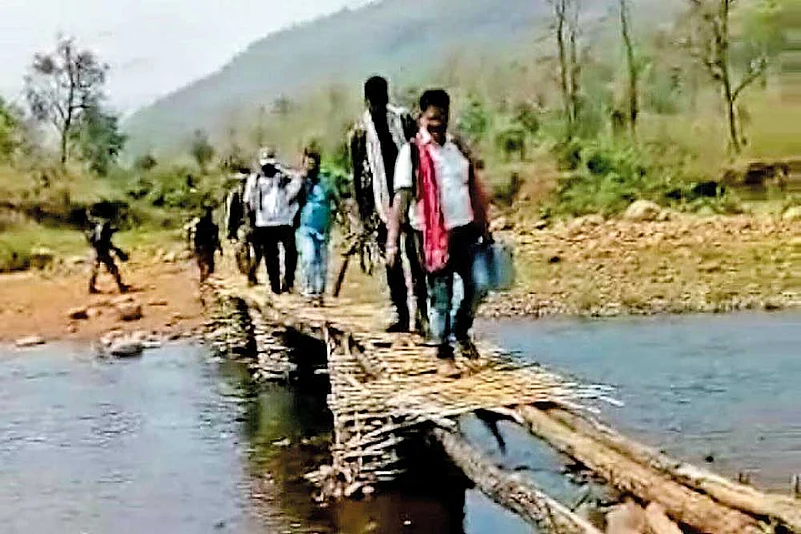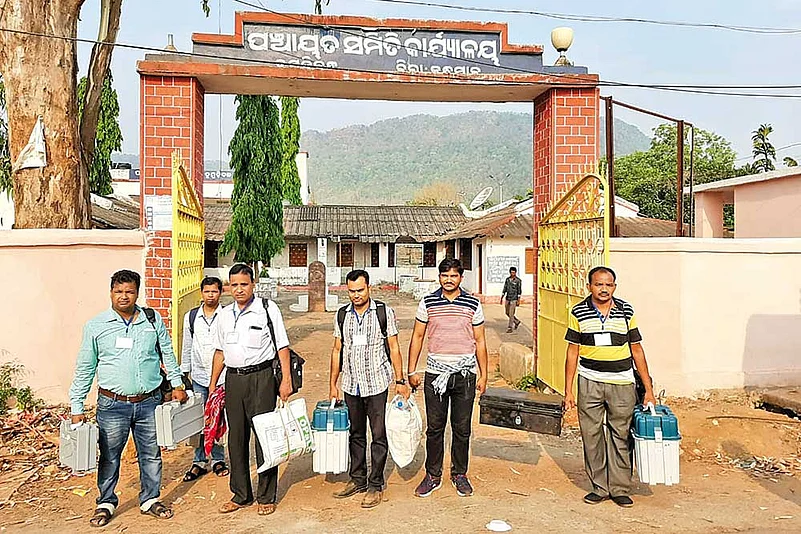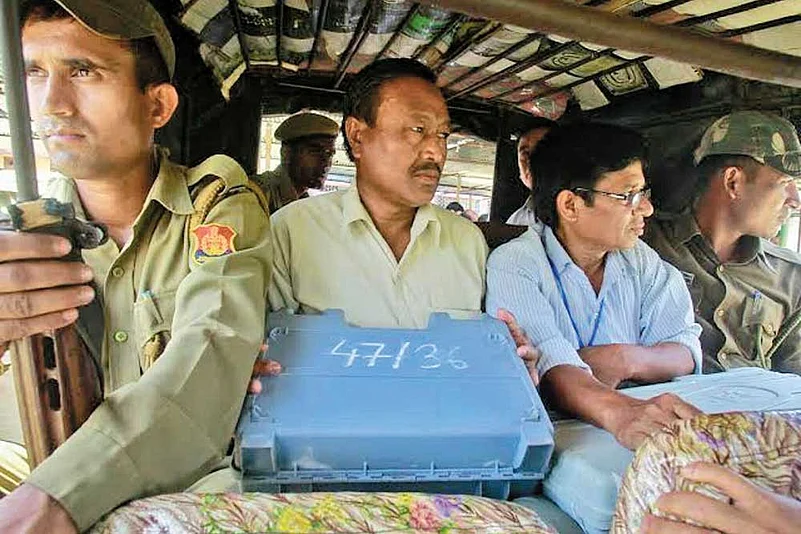Sanjukta Digal was fortunate to have survived a landmine blast. But her luck ran out soon. When she stepped out of her vehicle to examine an object on the road, she was shot dead. Digal was part of a five-member polling party heading to a booth on April 17. Earlier on the same day, Maoists had torched a vehicle ferrying poll officials to Mugunipadar village in Kandhamal district, Odisha.
In light of these events, officials staffing Booth No. 12 at Barahala village were justifiably terrified when they heard that insurgents had blocked their return path with felled trees. They decided to avoid the road route and trudge through forests with EVMs and VVPAT machines in hand. After polling ceased at 4 pm on April 18, the 11-member party embarked on a 15-km-long trek from Barala, the place Digul was gunned down the day before. Twenty three troopers of Special Operations Group, a dedicated anti-Maoist paramilitary unit raised by the Odisha government, provided security to them.
A bout of unseasonal rains made the journey through the jungle even trickier. “We were completely drenched in the showers and had to survive the night with just biscuits and water supplied by the security personnel,” said Sudhanshu Shekhar Meher, the leader of the polling party. “With the threat of a Maoist ambush lurking constantly, it was very scary.” The team reached the Balandapada police outpost only on the morning of April 19. From there, they took a vehicle to Phulbani, the district headquarters.

The officers on election duty at Booth No. 137 and 138 of Sirla panchayat in Baliguda assembly constituency were luckier. They also had to undertake an arduous 15-km-long trek to reach their destination, but enjoyed the ‘luxury’ of spending the night at a CRPF camp in Tumudibandha before heading to Baliguda the next morning.
The jungle treks in Kandhamal, however, pale in comparison to the ordeal that 36 poll personnel had to undergo in Malkangiri district during the first phase of voting on April 11. Not only is Malkangiri among the worst Maoist insurgency-affected districts of Odisha, its terrain is quite challenging as well. Little wonder then that the team on duty at Mudulipada reached Malkan-giri town, the district headquarters, in about 24 hours.
After polling ended, they hiked from Mudulipada to Khairput, climbing and descending eight hills of Bonda Ghati en route. With EVMs on their backs, they walked in a single file in absolute silence. But they could only trek for 8 km before the inkiness of the night enveloped the sky, forcing them to set up a makeshift camp.

“It was pitch dark all around. We were fearful not only of a Maoist ambush, but also of attacks by wild animals. Torrential rains made walking even more difficult,” recalls Arun Mandal, one of the officials. “We had no option but to take shelter under a tree on a hilltop almost 1,000 metres above the sea level. We huddled under a small sheet of tarpaulin to get cover from the rain. In the morning, we walked down the hill and reached the main road at Khairput, from where we travelled to Malkangiri. We deposited the EVMs only in the evening.”
In both Kandhamal and Malkangiri, the poll parties had no choice but to travel on foot due to the looming Maoist threat. “Just as voting was coming to an end, we received intelligence inputs that the rebels had laid landmines on the polling party’s return path,” says Malkangiri SP Jagmohan Meena. “Going in vehicles would have been suicidal. The officials would have been sitting ducks for Maoists. Since it was already getting dark, requisitioning a helicopter to ferry them was also out of the question. So we had to make them walk through hills under tight security cover.”
The exemplary fortitude of poll personnel has received plaudits from all quarters, including from acting DGP Bijay Kumar Sharma, and invited comparisons with the movie Newton, in which a dedicated officer seeks to conduct elections despite all odds.
By Sandeep Sahu in Bhubaneswar


























